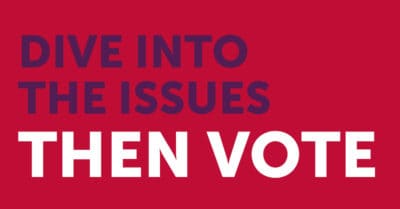
LWV Minneapolis is following city and community efforts to reimagine public safety. Learn about the issues and hold your elected officials accountable.
WHAT ARE OUR LEGISLATORS DOING AT THE STATE AND FEDERAL LEVEL TO ADDRESS PUBLIC SAFETY? WHAT SHOULD THEY PRIORITIZE?
Minnesota State Legislation
In the years after the killing of George Floyd, several Criminal Justice bills were passed that impacted several important areas*
- Limits on choke holds, warrior-style training, and use of deadly force were all enacted
- Training of police was explicitly required to include various mental health, de-escalation, and cultural diversity components
- The POST Board was expanded to include citizens to provide oversight and develop model policies on training and use of force. Police chiefs were directed to report incidents of police misconduct to the POST Board
- Traffic stops and no-knock warrants were under new limitations and reporting requirements, although some would say there’s room for improvement (See No-knock section below)
- 911 operators are to refer calls to mental health crisis teams in certain situations when teams are available.
- An arbitration panel specifically for police discipline disputes was created
*Signed by the Governor July 23, 2020. Bill - HF 1 and HF 2, and on July 31, 2021, the Omnibus judiciary and public safety finance and policy bill.
The 2022 Legislature passed no significant criminal justice legislation. Despite bipartisan support in areas such as officer recruitment/retention and the funding of additional services for youths, a final compromise could not be reached. If no special session convenes before January 2023, the following issues will likely be addressed again:
- How do we retain, hire, train, and effectively deploy police in the face of depleted numbers of police state-wide?
- Will there be funding for community-based crime-prevention programs, including grants for prevention, intervention, mental health and wellness of at-risk juveniles?
- Will there be police accountability reforms, such as extending the civil statute of limitations for bodily offenses committed by law enforcement, and a requirement that police body camera footage be released to families within five days after a deadly force incident – and to the public within 14 days?
- Will there be tougher penalties for crimes, especially violent crimes, such as carjacking and the killing of a police officer?
- Will money for salaries for judges and staff at the state courts (Supreme Court, District Courts, and Court of Appeals), Legal Aid and Public Defenders be increased after apparent underfunding? Will the Department of Corrections receive adequate funding?
No-Knock Search Warrants
On April 5, 2022, after the death of Amir Locke by police executing a no-knock warrant for his cousin, Minneapolis Mayor Jacob Frey announced a new policy for no-knock warrants. Under the new policy, MPD will no longer request no-knock search warrants or respond to no-knock search warrant requests on behalf of other jurisdictions. The new policy:
- Prohibits the application for and execution of all no-knock search warrants by MPD
- Requires that officers must repeatedly knock and announce their presence and purpose prior to entry and implements a minimum wait time of 20 seconds for all warrants and 30 seconds for warrants executed during nighttime hours (8 p.m. until 7 a.m., as defined by state statute)
- Creates a new risk classification and evaluation system for knock-and-announce search warrants
- Introduces new, safer entry tactics to deploy when entering a home or premise
- Enacts a more robust and thorough internal review and accountability process
Federally, in March of 2022, MN Representative Ilhan Omar introduced H.R.6877 - Amir Locke End Deadly No-Knock Warrants Act. So far there has been no further action on this bill.
Other Federal Legislation
Despite a flurry of activity in the wake of the killing of George Floyd, nothing much has changed on the Federal level. In 2020, George Floyd Justice in Policing Act was introduced in the United States Congress. It passed the House, but failed in the Senate. On March 3, 2021, renamed H.R.1280 - George Floyd Justice in Policing Act of 2021 the House again passed this bill and sent it to the Senate where it remains stalled.
